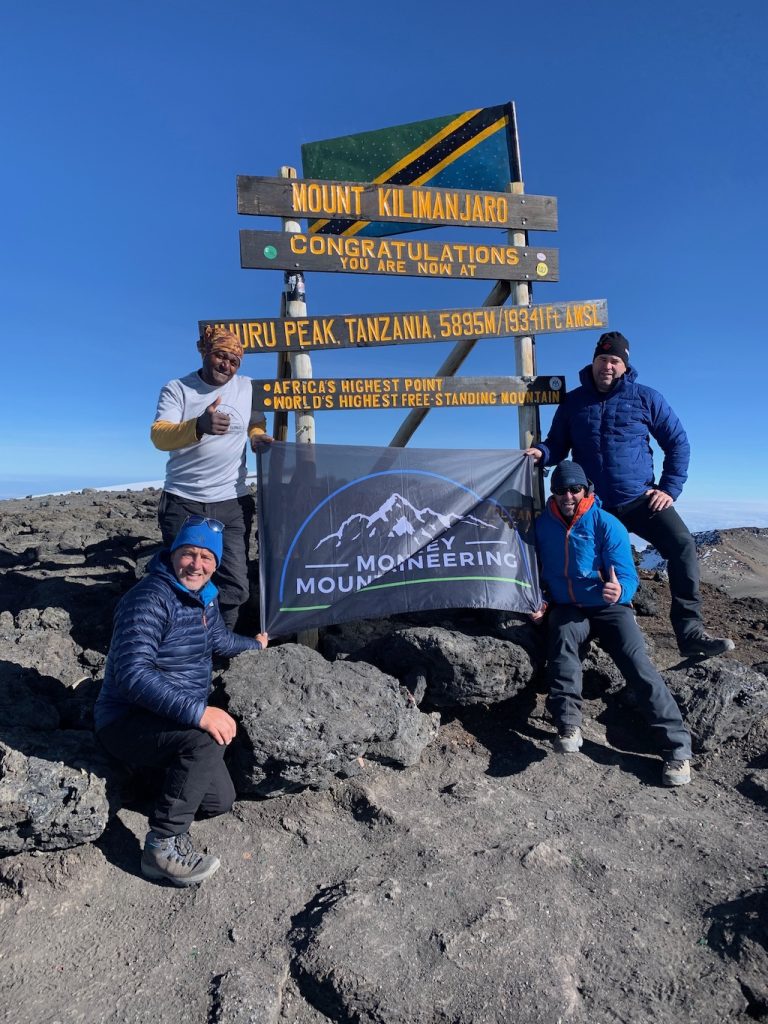A mountaineering adventure is an exhilarating experience like no other, offering breathtaking 360-degree views, thrilling new challenges and a profound connection to nature. However, the ecosystems and communities we encounter along the way are fragile and, as outdoor enthusiasts, each of us are responsible for reducing the impact our expeditions can have on them.
“But how?” I hear you ask. Well, we’ve teamed up with sustainable expedition company Monkey Mountaineering to unpack a few simple strategies you can follow to minimise your footprint on your next adventure, ensuring that future generations can enjoy the beauty of the mountains for years to come.
Preparation is key
Being more sustainable on your next adventure begins way before you lace up your boots for the trail head. When choosing your gear, opt for reusable items whenever possible and consider renting or borrowing equipment to reduce waste.
Additionally, think carefully about your travel before you set off. For example, do you have to take that internal flight, or can you take a train? Do you have to book that private taxi or can you book onto shared or public transport? By planning ahead and preparing thoughtfully, you can minimise your environmental impact from the offset.
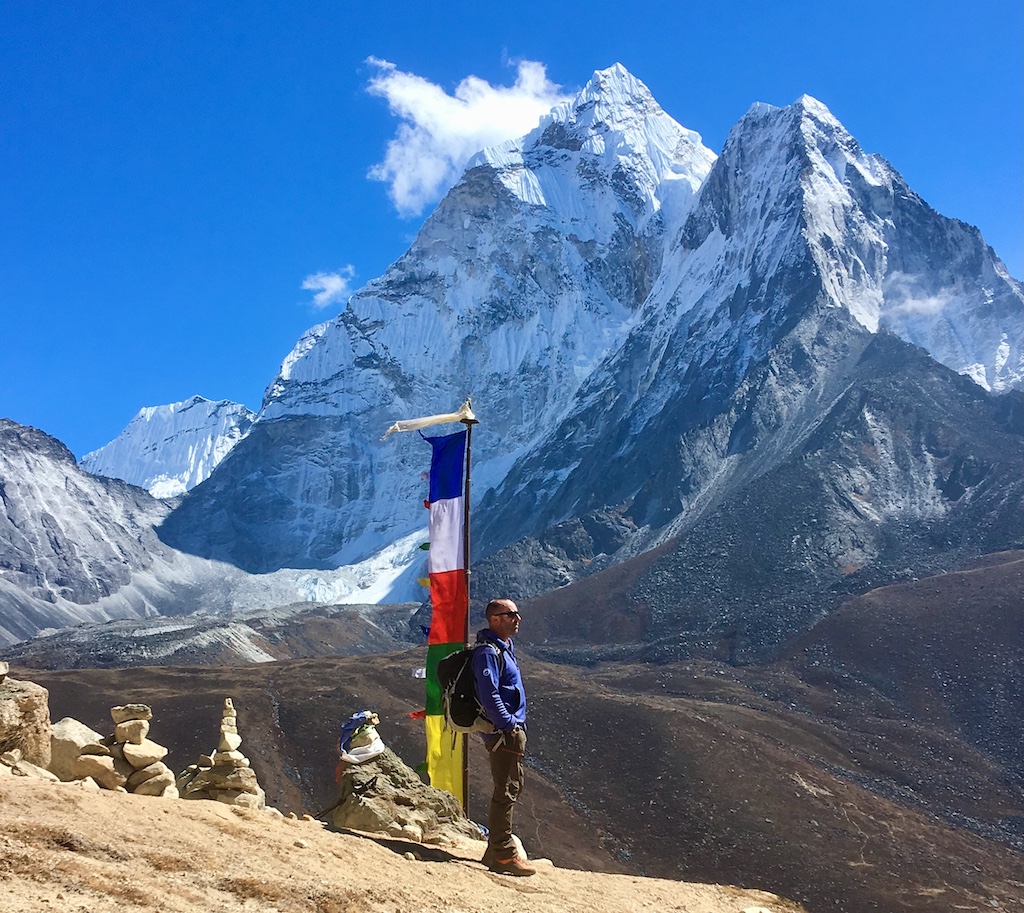
Always practice ‘Leave No Trace’
Leave No Trace is more than just a mantra—it’s a philosophy that guides us to take part in outdoor recreation responsibly. Whether you’re setting up camp for the night, preparing meals, or answering to ‘nature’s call’, always strive to leave your surroundings exactly as you found them.
This includes making sure you take all your rubbish with you, disposing of waste properly, recycling everything you can and avoid disturbing wildlife. By strictly following Leave No Trace principles, you can help preserve the pristine beauty of the mountains for everybody to enjoy.
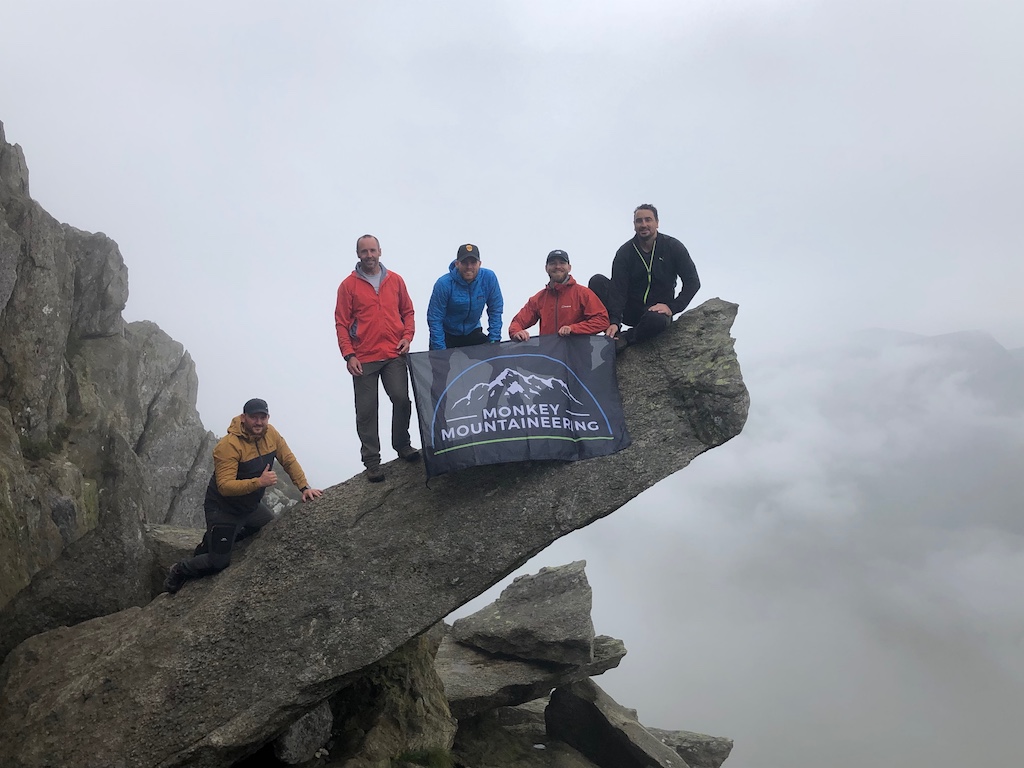
Minimise your carbon footprint
Ok, we get that mountaineering sometimes involves long-distance travel, which can contribute to carbon emissions and climate change, but there are ways we can work to help minimise our carbon footprint.
If you have to fly, try to fly direct – did you know that take-off and landing account for 25% of the emissions of a standard flight? Research suggests that avoiding layovers can cut enough CO2 off a person’s flight emissions to power a refrigerator for a whole year!
If flying direct is unavailable, take a little extra time to do your research and choose a flight operator that invests in reputable carbon offset programs.
Or, try one of Monkey Mountaineering’s UK Adventures. They can help you improve your climbing, your problem solving on the mountains, complete the three peaks challenge or winter walking. You can get all your adventurous kicks without taking any flight at all.
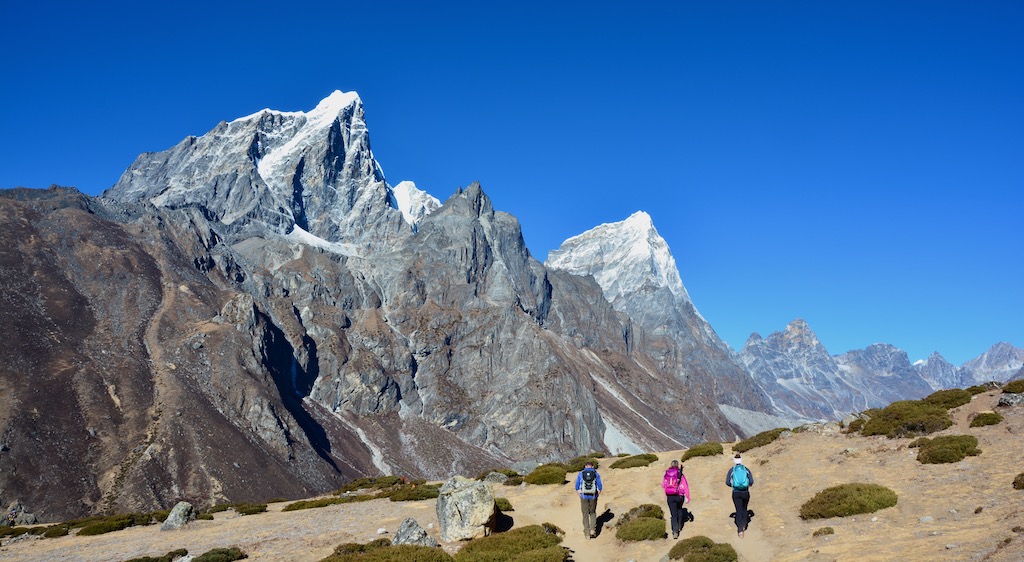
Respect local cultures and communities
As visitors in someone else’s country, it’s essential that we show the upmost respect for the customs, traditions, and beliefs of the communities we encounter during our mountaineering travels.
Take the time to learn about the local culture, greet people with courtesy, and seek permission before entering sacred or culturally sensitive areas. By fostering positive relationships with local communities, we can help preserve their heritage and ensure that tourism brings mutual benefits for all involved. Plus, you never know what fascinating stories you might hear or delicious cuisines you might discover when you take the time to connect with the locals!
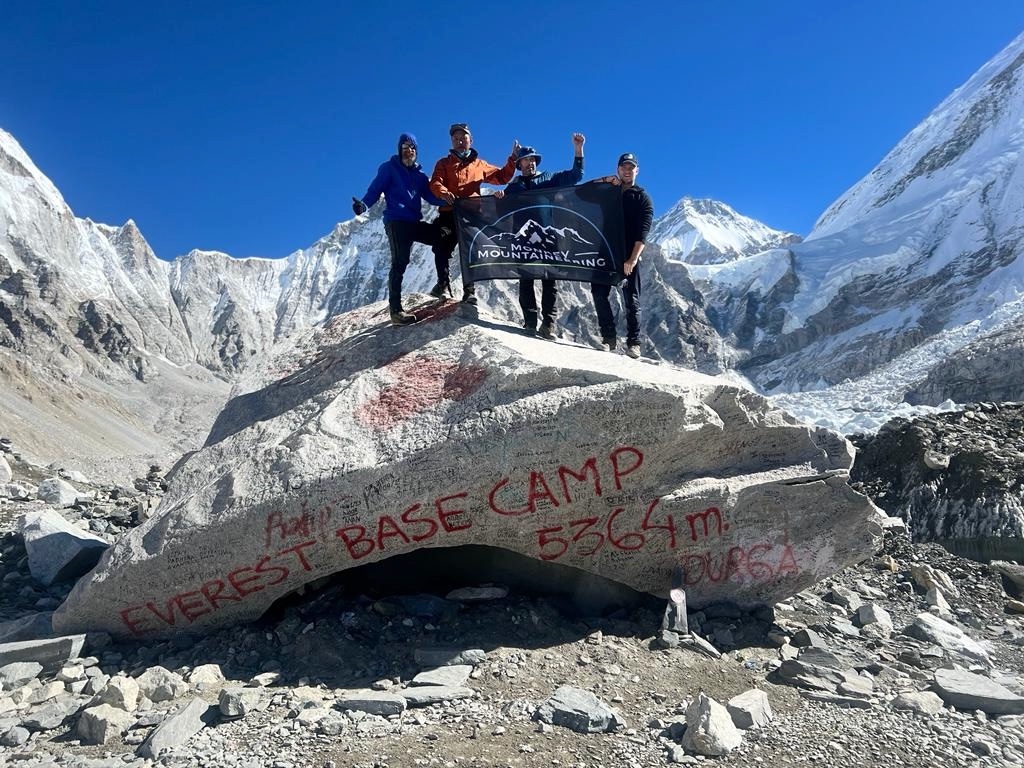
Leave a positive impact
Sustainable mountaineering isn’t just about minimising harm—it’s also about leaving a trail of goodwill behind and making a positive impact on the places we visit. Consider ways you could give back to the local community, why not add on some more days to your trip and help through volunteering, supporting local businesses, or participating in conservation projects.
If you’ve not got the extra annual leave to stay longer, then you can help in other ways. Tipping the locals when buying food, taking public transport, going on tours and dining out is also a fantastic way to help support the community’s small vendors. Also, try to shop from small businesses where you can. Remember, even small actions can make a big difference!
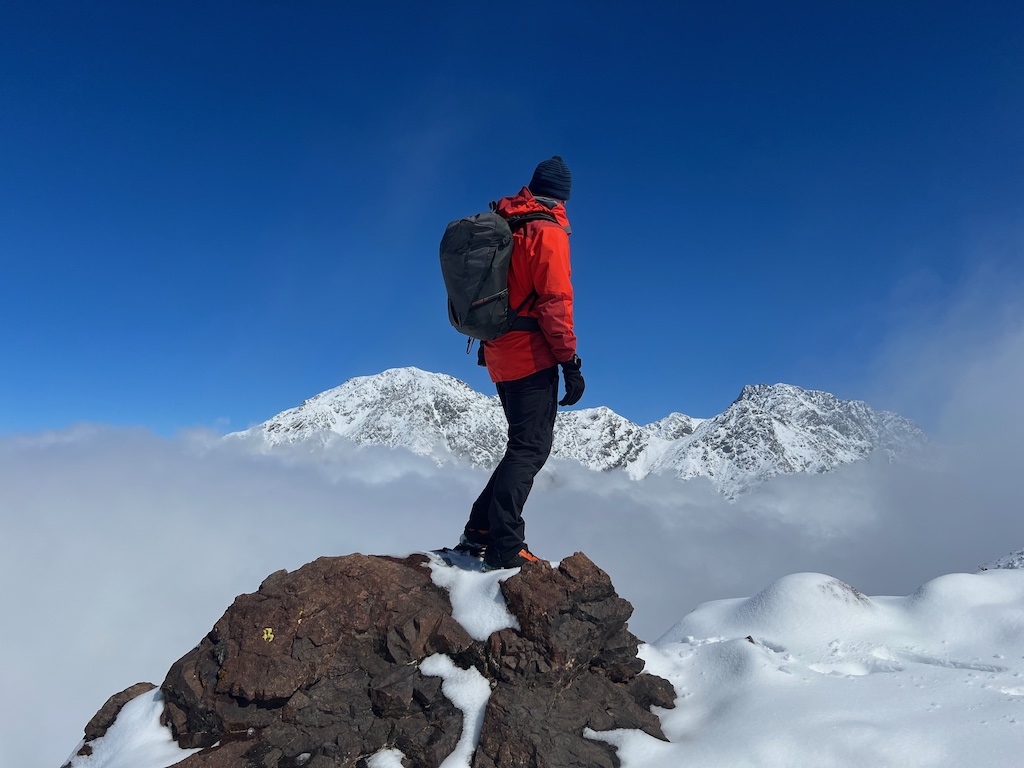
Support sustainable tour operators
For the non-professional mountaineers among us, it’s unlikely we’ll be heading to Everest Basecamp on our own, so when planning your trip, seek out tour operators that prioritise sustainability and responsible tourism practices.
Monkey Mountaineering is dedicated to crafting eco-conscious expeditions that prioritise Leave No Trace principles, support local communities, and minimise environmental impact. With their expertise, passion, and dedication to sustainability, they’re the perfect partner for adventurers who want to explore the mountains responsibly.
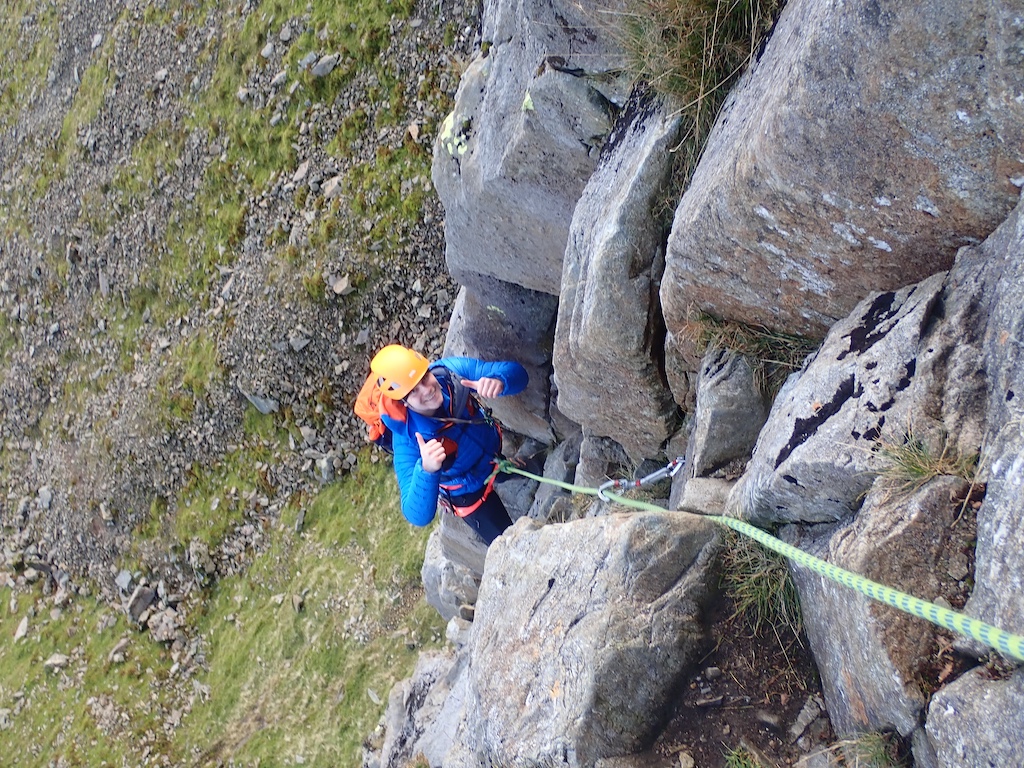
Monkey Mountaineering
Not only do they actively engage in responsible tourism, Monkey Mountaineering also offer skills training here in the UK, helping people of all ages and skill levels to develop as mountaineers. From basic climbing techniques to advanced navigation skills, the company provides comprehensive training to ensure that adventurers are well prepared for their next expedition.
In addition to their standard package offerings, Monkey Mountaineering also specialises in bespoke itineraries carefully tailored to the individual goals of their clients. Whether it’s tackling Kilimanjaro, ticking Everest Base Camp off of the bucket list or even pursuing a more challenging personalised adventure, Monkey Mountaineering works closely with clients to design itineraries that prioritise their comfort, safety and enjoyment.
So, whether you’re a novice looking to conquer your first peak or an experienced climber seeking a new challenge, Monkey Mountaineering has the expertise and dedication to turn your mountaineering dreams into reality. More information can be found on the Monkey Mountaineering website.



